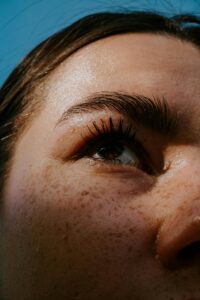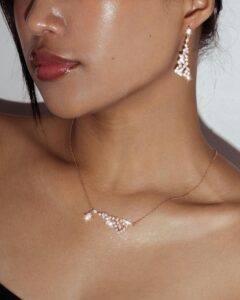
Introduction
If you’re struggling with breakouts, you might be wondering whether your daily coffee habit is to blame. In this post, we break down the link between coffee and acne, including how caffeine, dairy, and sugar could be triggering skin issues. You’ll learn whether coffee increases cortisol (a stress hormone linked to breakouts), how it affects oil production, and what adjustments you can make to keep your skin clear. Plus, we’ll share tips on acne–friendly coffee alternatives! Don’t let your skincare routine go to waste—find out if coffee is working against your skin goals.
If you want to learn more about skincare, discover which products are right for you, and get the best skin recommendations and tips, click the button below and explore the world of skincare recommendations. skincare
In Summary
What does caffeine do to your body?
Does coffee cause acne?
Diary and acne
Hormones
Alternatives
What does caffeine do to your body?
Caffeine is a stimulant that wakes you up and makes you feel more alert by blocking a chemical in your brain that makes you sleepy. It gives you an energy boost, helps you focus, and can even improve your mood by increasing certain feel-good chemicals. It also raises your heart rate and blood pressure for a short time, which is why some people feel more awake or even a little jittery after drinking coffee. Caffeine can also speed up your metabolism and help with physical performance. However, too much can lead to restlessness, trouble sleeping, or feeling anxious. Everyone reacts differently to caffeine depending on how sensitive they are to it.

Does coffee cause acne?
Coffee itself doesn’t directly cause acne, but it can contribute to breakouts depending on how you drink it and how your body reacts to caffeine. Caffeine increases the production of cortisol, the stress hormone, which can lead to more oil (sebum) production and, in turn, clogged pores and breakouts. If you add milk, cream, or sugary syrups to your coffee, these ingredients can also trigger acne. Dairy is known to influence hormones that may worsen breakouts, while sugar can cause inflammation and increase oil production. Additionally, drinking too much coffee can dehydrate your skin, making it produce more oil to compensate. While coffee isn’t the main cause of acne, the way you consume it and how your body responds to caffeine can play a role in your skin’s condition.
Diary and acne
Dairy in coffee can make acne worse for some people because of the hormones found in milk. When you drink milk, it increases a hormone called insulin-like growth factor (IGF-1), which can lead to more oil being produced in your skin. This extra oil can clog your pores and cause breakouts. Dairy also raises androgen hormones, which are linked to oil production in the skin. If you notice that your acne gets worse after drinking coffee with milk or cream, it might be helpful to try plant–based milk alternatives like almond or oat milk, which are less likely to cause breakouts. Keep in mind that not everyone reacts to dairy the same way, so it can be useful to pay attention to how your skin responds and see if dairy is the cause.

Hormones
Coffee itself doesn’t directly cause acne, but the caffeine in it can affect your hormones, which might lead to breakouts. When you drink coffee, caffeine increases the production of cortisol, which is a hormone released in response to stress. High levels of cortisol can cause your skin to produce more oil, which can clog your pores and lead to acne.
In addition to cortisol, caffeine can also affect other hormones in your body, including insulin and androgen hormones. Elevated insulin levels can increase oil production, and androgens (which are hormones that increase during puberty) can stimulate the sebaceous glands to produce more oil as well, leading to clogged pores and acne. If you notice breakouts after drinking coffee, you might want to try cutting back or switching to decaffeinated options to see if that helps reduce the acne.

Alternatives
If you’re looking for alternatives to coffee that won’t trigger acne, consider switching to drinks that are gentle on your skin and free from caffeine or dairy, which can contribute to breakouts. Herbal teas like chamomile, peppermint, or rooibos are naturally caffeine-free and full of antioxidants, making them great options for soothing and hydrating your skin without affecting hormones. Green tea, while containing a small amount of caffeine, is packed with skin-friendly antioxidants that can help reduce inflammation and protect your skin from damage.
For a warm, comforting drink, golden milk made with turmeric and plant-based milk like almond or oat milk offers anti-inflammatory benefits and helps calm irritated skin. If you’re craving a drink with a bit more energy, matcha provides a mild caffeine boost and is also rich in antioxidants that support skin health. Lastly, decaffeinated coffee offers the same taste as regular coffee without the hormonal effects of caffeine, making it a good choice for coffee lovers who want to protect their skin. These alternatives can help you enjoy your favorite beverages while keeping your skin clear.




